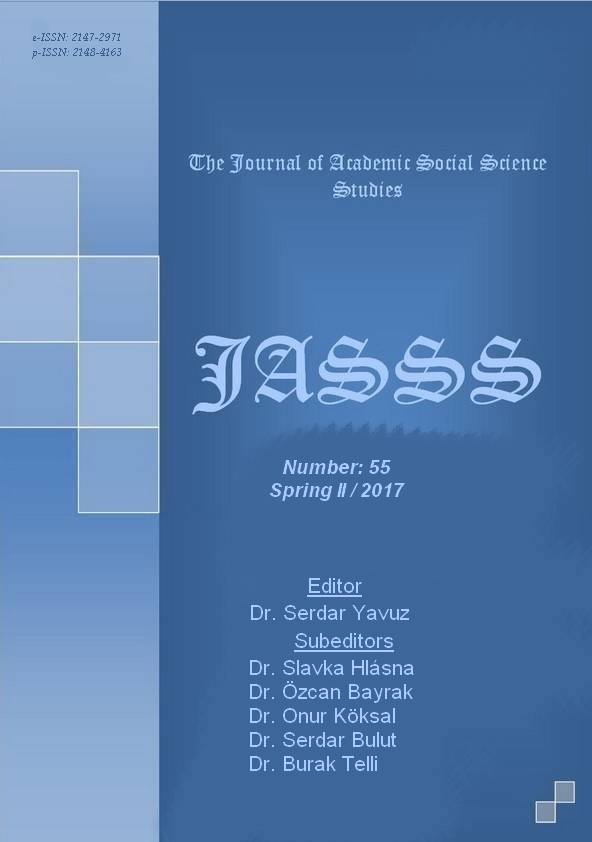Author :
Abstract
İletişim teknolojisinin gelişimi yeni kavramların ve alanların gelişiminde etkili olmuştur. Çalışmada incelenen internet, sosyal medya, ticaret kavramları her geçen gün gelişerek tek bir çatı altında toplanmıştır. İnternet teknolojisinin dönüşümü e-ticaret kavramını ortaya çıkarmış ve işletmelerin ürünlerini tüketicilere yer ve zaman fark etmeksizin pazarlama imkânı oluşturmuştur. Küçük ve orta ölçekli işletmelerin (KOBİ) geleneksel ticarette ki zorlu rekabet koşullarında kendilerine çok az bir pay edinmiştir; fakat e-ticarette oluşan istihdam payı ve küçük bütçelerle geniş ürün yelpaze sunma imkânı markaları e-ticarette yönlendirmektedir. E- ticaret sektöründe işletmeler müşterilere en kısa yoldan ulaşmak zorundadır. Sosyal medyanın gelişmesiyle birlikte müşterilerin ilgi alanlarına göre içerikler sunmakta ve reklam kampanyaları düzenlemektedir. İnternet teknolojisinin gelişimi etkileşimi hızlandırmakta, alıcı veya tüketici aktif bir konuma gelmektedir. Bu durum üreticilerin, tüketicilere odaklanmasını ve onları iyi analiz etmesini gerektirmektedir. İnternet üzerinde alışveriş gerçekleştiren tüketiciler; genellikle bilinçli, eğitim düzeyi yüksek ve beklentileri karşılanmadığı zaman alternatif bir siteye giden bir görüntü çizmektedir, bu nedenle işletmeler sosyal medya politikasını doğru yönlendirmesi gerekmektedir. Sosyal medyada ağları markalar için iş ortaklığı arz etmektedir. İş ortaklığının sonucu markalar ürün ve hizmetlerini tüketicilere sunmuş, az sermaye ile milyonlarca kitleye ulaşmayı hedeflemiştir. Bu çalışmada son dönemde e-ticarete yönelen Çaykur ve e-ticaretle sektöre giren Tesbihane ile derinlemesine mülakat gerçekleştirilerek iki firmanın e- ticaret stratejileri ve sosyal ağların markalara vermiş olduğu yön incelenmiştir.
Keywords
Abstract
The advancement in communication technologies has led to the progress of new terms and fields. Having improved day by day, internet, social media and commercial terms studied in this article has been gathered and assessed under a single roof. The transformation of internet technology has led the emergence of e-trade and made the marketing and delivery of goods to customers cheaper and easier without time and location limitations. Small and medium sized enterprises have attained a little share in these tough competitive conditions; so the employment share obtained in e-trade and the opportunity of supplying wide-range of goods with little budgets have been encouraging the companies to venture into e-trade. Firms operating in e-trade have to reach to the customers directly right away. In line with the advancement of social media they have offered various choices in respect to customers’ interests and run commercial campaigns. The advancement of internet technology accelerates the interactions, so customer or consumer becomes more active. This situation makes producers focus on consumers and analyze their needs. The people marketing on internet depict a portrait of conscious and cultivated consumers visiting another web-site when their demand is not met. That is why firms should manage their social media policy very well. Social media networks enforce the firms to collaborate with each other. As a result of business partnerships, the firms are able to supply products to the customers and have planned to reach mass people with a limited budget. In this study how social media has affected the commercial performance and e-trade strategies of Caykur and Tesbihane venturing into e-trade nowadays have been investigated, carrying out comprehensive interviews.
